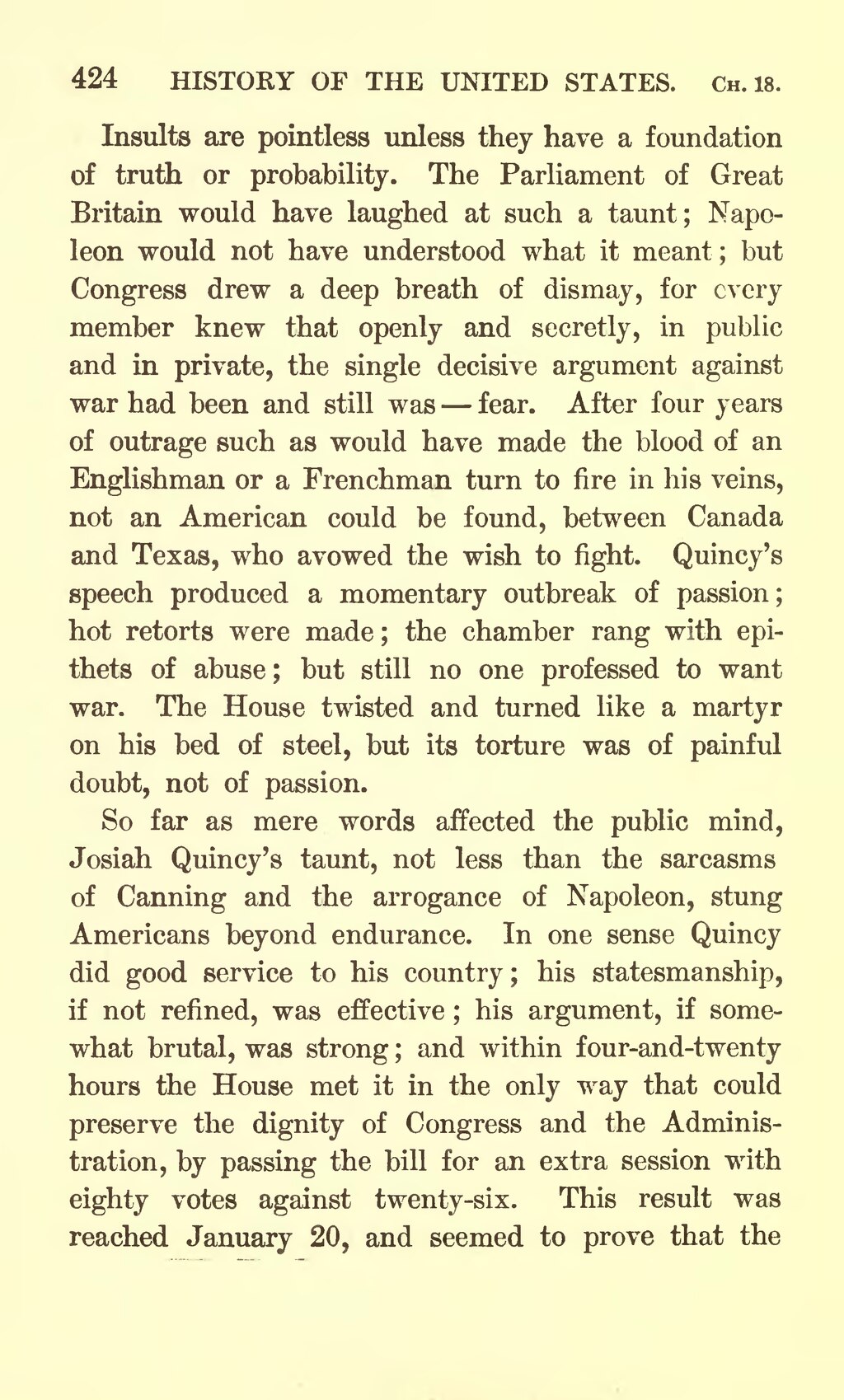Insults are pointless unless they have a foundation of truth or probability. The Parliament of Great Britain would have laughed at such a taunt; Napoleon would not have understood what it meant; but Congress drew a deep breath of dismay, for every member knew that openly and secretly, in public and in private, the single decisive argument against war had been and still was—fear. After four years of outrage such as would have made the blood of an Englishman or a Frenchman turn to fire in his veins, not an American could be found, between Canada and Texas, who avowed the wish to fight. Quincy's speech produced a momentary outbreak of passion; hot retorts were made; the chamber rang with epithets of abuse; but still no one professed to want war. The House twisted and turned like a martyr on his bed of steel, but its torture was of painful doubt, not of passion.
So far as mere words affected the public mind, Josiah Quincy's taunt, not less than the sarcasms of Canning and the arrogance of Napoleon, stung Americans beyond endurance. In one sense Quincy did good service to his country; his statesmanship, if not refined, was effective; his argument, if some what brutal, was strong; and within four-and-twenty hours the House met it in the only way that could preserve the dignity of Congress and the Administration, by passing the bill for an extra session with eighty votes against twenty-six. This result was reached January 20, and seemed to prove that the
